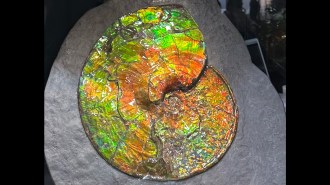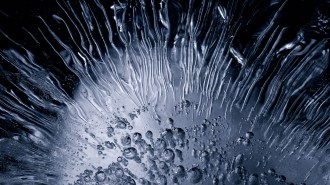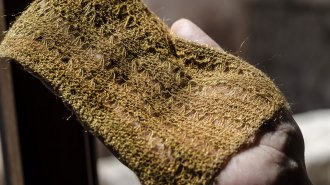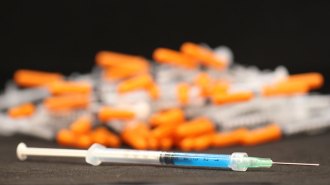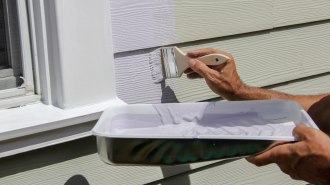Next High-Tech Polishing Fluid: Tea—A new brew for the computer industry
Many tea drinkers know about tannins, those pesky molecules that stain teeth and ceramic mugs. Last year, John L. Lombardi, a green tea drinker, learned that makers of hard-disk drives were thirsting for a nontoxic polishing liquid that would cling to ceramic grains and flush them away.

“A light went off in my head,” recalls Lombardi, a materials scientist and head of Ventana Research, a small surface-chemistry laboratory in Tucson.
Starting with green tea extract, he and his Ventana colleagues brewed up a concoction of chemically modified tea, synthetic proteins, and an abrasive to be used to finely polish, or lap, the aluminum-titanium-carbide ceramic slivers that become read-write heads. Tests now indicate that the fluid performs as well as a conventional polishing liquid, yet acts more quickly. That speedup could boost productivity while reducing the rate at which lapping equipment wears out, Lombardi says.
Read-write heads employ magnetic fields to sense or record bits of information on a spinning disk. Manufacturers typically lap heads to eliminate irregularities larger than a nanometer tall, or about the height of a stack of 10 hydrogen atoms. Such exquisite smoothness ensures that the heads will sail freely over underlying disks. Tools for the polishing usually include rotating plates covered with diamond grit and a slippery polishing liquid.
Last week, an unnamed hard-drive maker collaborating with Ventana completed the first tests of the new lapping fluid on production equipment. The results indicate that lapping with the tea-based slurry renders heads about as smooth as does processing with a conventional slurry, Lombardi told Science News.
Donald Zipperian of Pace Technologies in Tucson notes that conventional slurries are mixtures based on ethylene glycol, a toxic substance that’s the main ingredient of antifreeze. Hard-drive manufacturers stand to save millions of dollars now spent on managing their ethylene glycol waste streams, he says. Pace, a supplier of conventional lapping fluids, expects to market the tea-based slurry.
Compared with conventional products, the tea slurry reduces lapping time by up to 75 percent, Lombardi says. He speculates that the fluid enhances electrical repulsion between a head’s hard surface and particles partially dislodged from that surface during the polishing process.
Read-write heads aren’t the only products for which the tea slurry may prove useful. Srini Raghavan of the University of Arizona in Tucson, who has been evaluating the new fluid for the Ventana scientists, says that his lab plans to explore versions of the slurry for polishing other materials, such as copper wiring on microchips.
“These guys are going in the right direction,” comments Brij M. Moudgil, who heads the Particle Engineering Research Center at the University of Florida in Gainesville.

